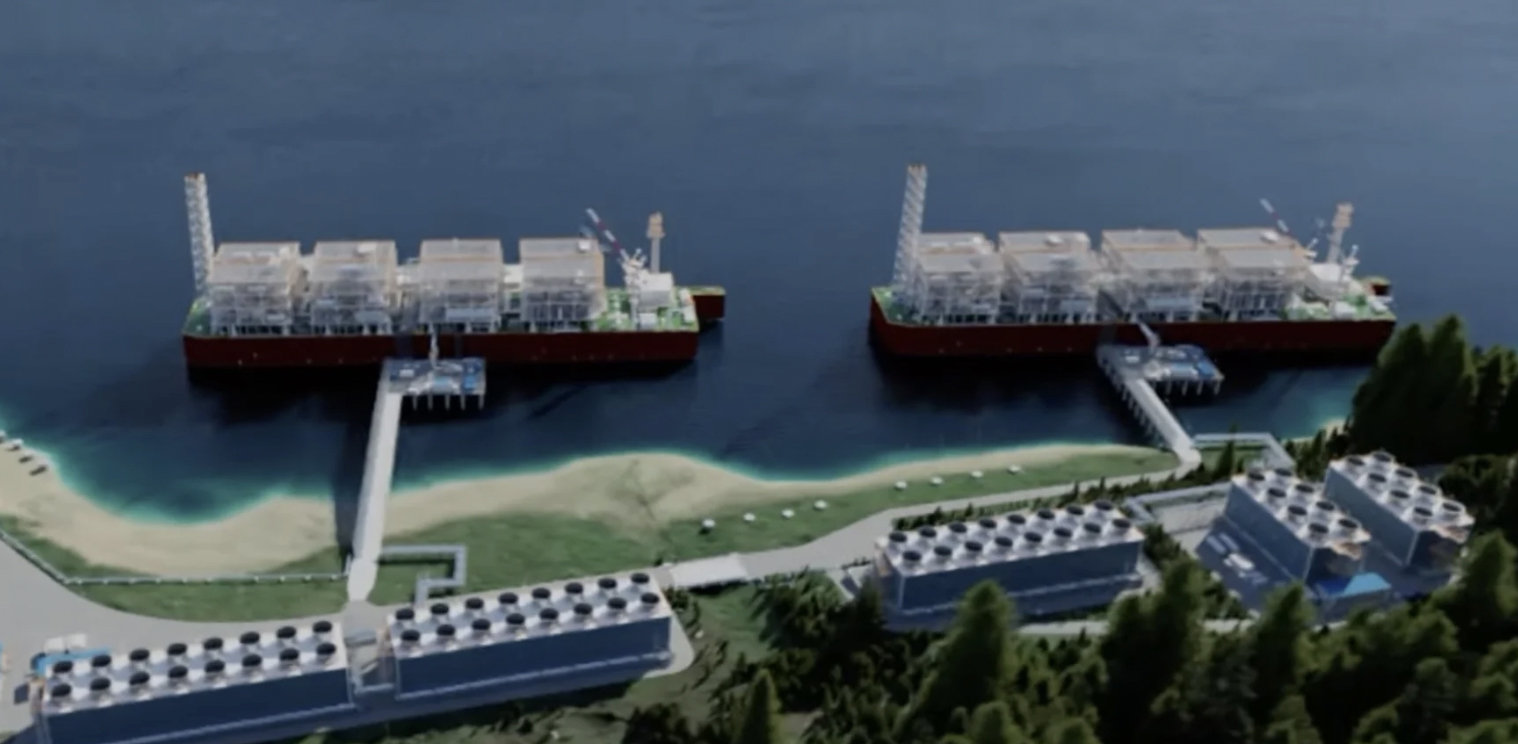Gitanyow is prepared to challenge Ksi Lisims, even through the courts, over what they say is “one-sided and industry-driven” consultation on its LNG project in northern B.C.
The nation is concerned about the climate and environmental impacts, particularly the effect on salmon populations. It’s why Gitanyow is calling for a pause on the provincial environmental assessment process until there is sufficient time for fishery genetic studies, holistic climate impact information and other information listed in a letter addressed to Ksi Lisims’ corporate leadership.
Tara Marsden, Wilp sustainability director for the Gitanyow Hereditary Chiefs, told Canada’s National Observer that Gitanyow leadership was made aware too late to provide meaningful consultation and proper timelines according to Gitanyow policies and protocol found publicly on Gitanyow’s website.
“It was only through finding things out in the meeting that we found out this project could affect our rights,” Marsden explained, noting Gitanyow is playing catch-up to conduct their own surveys to measure the project’s impacts.
But time is ticking. The environmental assessment for Ksi Lisims is due in the fall, around election season for the province.
It’s still unclear if the provincial government will approve the LNG project’s environmental assessment. However, Cedar LNG, a project partially owned by the Haisla Nation, was celebrated by B.C. Premier David Ebey as an example of protecting the environment while creating good jobs.
But Marsden isn’t buying it, pointing to risks to the salmon estuary and the climate impacts of fracking and combustion when gas is used.
In their letter to Ksi Lisims, Gitanyow opposed the claims the LNG facility will be “net-zero” ready, meaning the project will have a low greenhouse gas footprint stemming from electrification and likely a carbon offset program.
For Gitanyow, there are also concerns about how the project will be electrified. Marsden has heard it could take up to two Site C dams, the contentious hydroelectric megaproject in the province, to power Ksi Lisims. Marsden is confused and worries about increasing drought conditions, climate change and a dwindling number of big rivers to dam.
“They’re asking for this huge diversion of power, just to support a fossil fuel project,” she explained. “It really begs the question of the net-zero claims.”
Still, Marsden understands that every nation has the right to decide how they want to pursue economic development, which Haisla and Nisga’a have said will bring significant benefits to their people. For example, Ksi Lisims inked a deal with Shell Eastern Trading of Singapore, which invested to lock down a fifth of Ksi Lisims’ gas production. That’s around two million tonnes of natural gas a year.
But for megaprojects, it’s not just one nation that will be affected, but all the nations in its region, Marsden said.
It’s why Marsden thinks the word “redwashing” — a play on “greenwashing,” using reconciliation as a smokescreen for industry — might be used more as these megaprojects emerge wearing the face of First Nation leadership.
“It’s unfortunate, just because it does cause division within our communities,” she explained, noting that the multinational and multibillion-dollar companies have these “tactics down pat.”
Canada’s National Observer contacted Ksi Lisims LNG for comment on Gitanyow’s climate and salmon impact concerns. The company declined, citing a land dispute between the Gitanyow and Nisga’a that is now before the courts.
“While the dispute does not involve the land where our facility will be located, out of respect for their process, I must decline to comment on the Gitanyow’s current position on our project,” Rebecca Scott, senior director of communications and public affairs at Ksi Lisims LNG, said in an emailed statement.
Meanwhile, on Wednesday, five B.C. non-governmental organizations voiced their support for Gitanyow’s calls to pause the environmental assessment for the Ksi Lisims LNG project.
Read original article by Matteo Cimellaro on Canada’s National Observer website.
